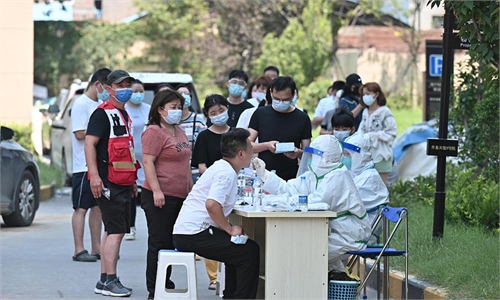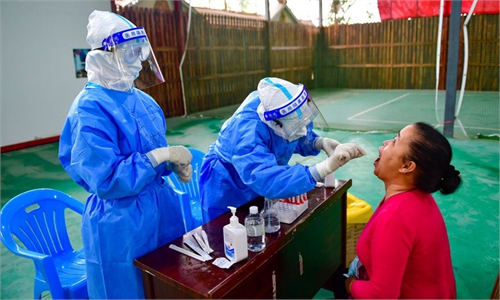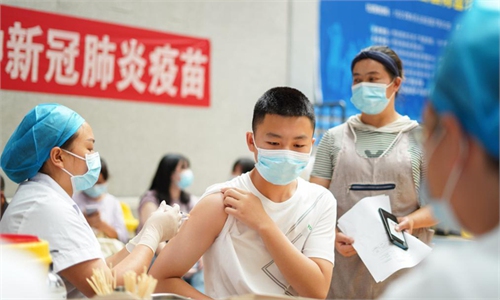Ravaging Delta variant complicates China’s control, highlights need of dynamic zero-case
Not time to discuss West idea of ‘open the door’ strategy due to mutation uncertainty
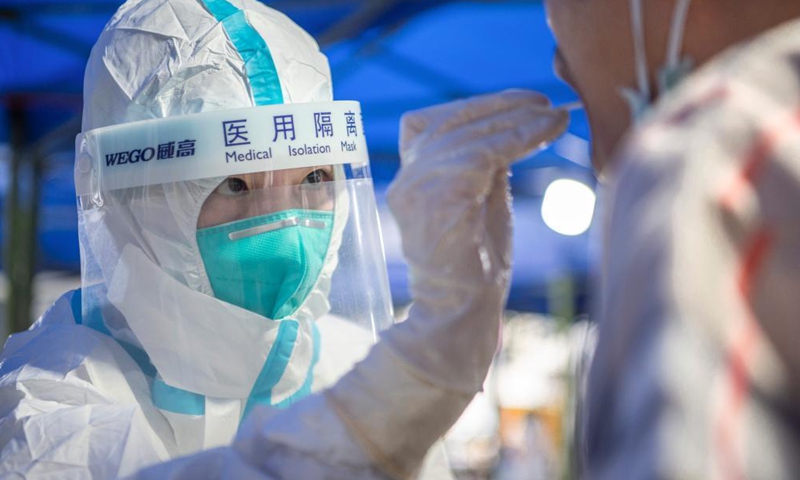
Nurse Han Miaomiao takes a swab sample from a resident for COVID-19 nucleic acid testing in Wuhan, central China's Hubei Province, Aug. 4, 2021.Photo:Xinhua
China on Friday reported 47 new domestically transmitted COVID-19 cases and 52 imported cases, which is the first time the latter exceeds the former since the latest Delta variant-related resurgence.
Despite strict domestic control measures and efforts in screening potential patients, observers interpreted the epidemic situation as still complicated and the pressure from overseas mounting, meaning it is not the time to discuss "open the door" strategy in Western sense.
The latest resurgence, which broke out in multiple spots, has involved 48 cities in 18 provinces and regions, and registered 1,282 cases as of Friday, authorities said at a Friday press conference.
Among the 48 cities, 36 haven't seen new infections in the past five days, and the risks of an extensive outbreak are low, He Qinghua, an official from National Health Commission, said at the press conference.
But the situation is still complicated, especially in Yangzhou where the situation "didn't improve significantly," Wang Guangfa, a respiratory expert at Peking University First Hospital, told the Global Times Friday.
Six positive cases were found on Thursday's 7th round massive nucleic acid testing in Yangzhou. Community transmissions could occur if new infections are discovered in the general public, not quarantined close contacts, Wang said.
The 52 imported cases reported on Friday, a peak in recent days, also suggested the severe pandemic situation posed a great challenge to China's hard-won situation.
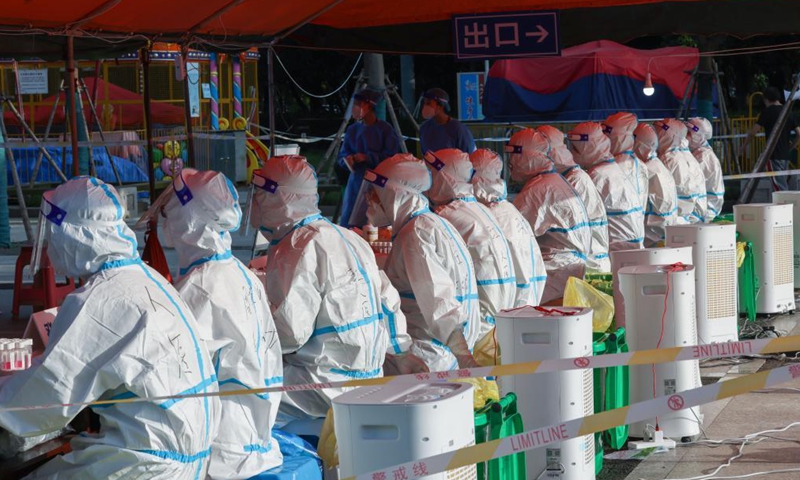
Medical workers and volunteers work on COVID-19 nucleic acid testing in Jiangdu District of Yangzhou, east China's Jiangsu Province, Aug. 6, 2021. Jiangdu District of Yangzhou launched a second round of nucleic acid testing on Friday.Photo:Xinhua
Experts noted the spread of the Delta variant worldwide demonstrated it is too soon to loosen the guard against the coronavirus.
The US, which was engulfed by the Delta variant, registered 138,595 new infections on Thursday, bringing the total to 36.4 million. The US CDC said 91 percent of American counties were at high or substantial risk of community transmissions on Wednesday. The number was 20 percent a month ago.
Relaxing restrictions in such a situation is adding fuel to the fire, Wang said.
Japan, which just hosted the Olympics, reported a record 18,889 infections Thursday. Local experts called the situation in Tokyo "out of control," the Asahi reported.
Besides the most prevalent Delta variant, a new Lambda variant that is devastating South America also sounded the alarm.
Unlike the traditional concept of virus evolution, Wuhan-based virologist Yang Zhanqiu told the Global Times that the COVID-19 variants were independently developed in different places across the world and adapted to local environments.
The diverse environments gave those variants diverse characteristics, which are very problematic, "such as the increased immune evasion of the Lambda variant," Yang said.
Unlike SARS that was quickly brought under control, since the coronavirus has spread worldwide and continues to mutate, it is uncertain what kind of COVID-19 variants may emerge, experts said, noting China's relatively successful epidemic control earned the country the chance to choose its control strategy, unlike some countries which have no choice but to live with the virus.
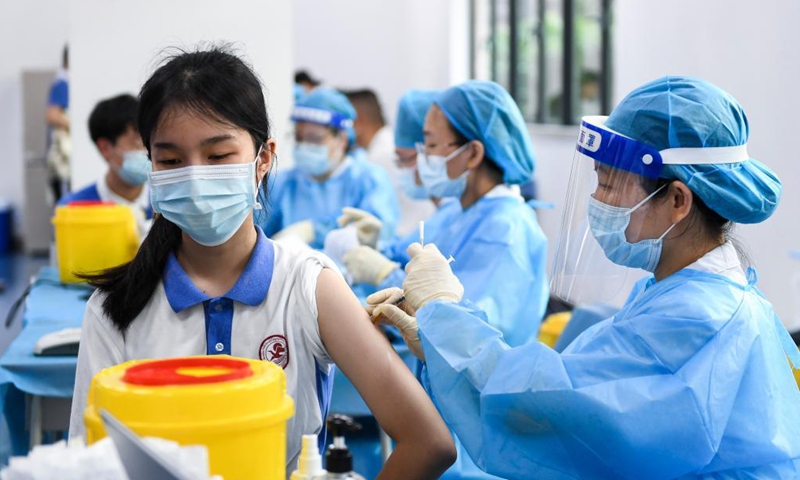
A medical worker administers a dose of COVID-19 vaccine for a student at a high school in Shenzhen, south China's Guangdong Province, July 29, 2021. The city started COVID-19 vaccination for minors aged between 12 and 17 on Thursday.Photo:Xinhua
Zeng Guang, a former chief epidemiologist at the Chinese CDC, said that China has done well in epidemic control and has the conditions and capabilities to maintain a dynamic zero-case status, and such a status gave the country stability and confidence in normal life and business. Some countries do not have such capabilities, and are not qualified to consider a dynamic zero-case route.
Costs for the massive testing and lockdowns are worth it if we consider the GDP of a normally running society, Zeng said.
But the expert noted China will not stick to the dynamic zero-case route all through and China's current strategy is not its only strategy, "We will adjust according to the virus control requirements."
China will open the door when the time is ripe for doing so, Zeng noted.

